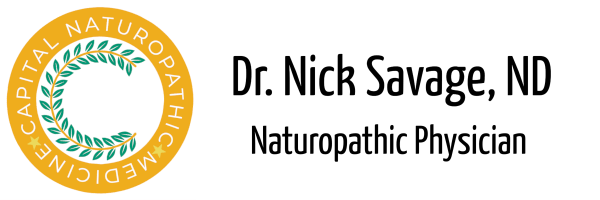What Is Naturopathic Medicine?
Naturopathic medicine is a system of primary healthcare that blends modern scientific knowledge with traditional and natural forms of medicine. It emphasizes the use of natural modalities – such as nutrition, lifestyle counseling and botanical medicine – to promote wellness and treat illness. Naturopathic doctors (NDs) work according to a set of basic principles – the Principles of Naturopathic Medicine – that include such things as stimulating the healing power of the body and addressing the underlying causes of disease, rather than focusing on alleviating symptoms. The practice of naturopathic medicine requires understanding illness within the context of a person’s whole life. The naturopathic approach to healthcare also emphasizes patient education and self-care. Naturopathic medicine can be used in conjunction with conventional medical therapies to support the body’s healing processes-an approach referred to as “integrative medicine.” In some clinics and hospitals, NDs work in collaboration with MDs, DCs, DOs, acupuncturists, and other healthcare practitioners, and they refer patients for emergency and other situations when necessary. While NDs primarily use natural healing approaches, they are also trained to perform minor surgeries, such as removing cysts or suturing superficial wounds, as well as to utilize prescription drugs under certain circumstances

Principles of Naturopathic Medicine
1. The Healing Power of Nature, or in Latin: Vis Medicatrix Naturae, which is the fundamental observations that our human bodies are part of nature and that the force of life itself is healing. The ancient Greek word “physis” refers to this vital force of nature within all living organisms and is the root for such words as physician, physics and physique. Before the 20th century this approach to medicine was called Vitalistic; in the language of modern science it parallels the emerging knowledge of self-organizing processes, ecology and systems theory. Thus, naturopathy has always focused on health as much as disease, stimulating, enhancing and supporting your body’s inherent ability to heal as much as the virus, bacteria, injury or illness. We know what it feels like to be vital and vigorous. Naturopathy focuses on tapping into these deep resources and using them to heal our illnesses and keep us well.
2. Treat the Cause, or in Latin: Tolle Causum. Many symptoms are expressions of the body’s attempt to heal itself and their suppression will not address the root causes of dysfunction, illness and disease. Quite simply, treating symptoms is always important in medicine but deep and lasting healing, the medical outcomes that we all really seek are based on discovering the causes of dysfunction and disease and changing them in a fundamental and lasting way. This also inherently means that each individual needs to be treated in a unique and evolving therapeutic process that reflects their history and physical characteristics, addresses their weaknesses, stresses and strengths, and creates opportunities for their own personal growth, self-discovery and transformation. Thus, a digestive problem such as heartburn needs to be treated but opens the doorway to looking at stress patterns, movement, tension and exercise, healing and stressful foods, and new tools for feeling what is good for us. Treating the cause removes blockages that have been preventing the natural healing processes from occurring and thus unleashes our inner healing momentum and empowers us to learn from our illnesses and difficulties to live better, stronger, healthier, more creative lives. Preventive medicine isn’t just about reducing risks and avoiding disease, it is really about learning to hear your body’s feedback and discovering ways to not just feel “OK,” but to feel better.
3. Do No Harm, or in Latin: Primum no nocere. Hippocrates declared: “First, Do no harm” as the most Important principle of medicine back in ancient Greece. Naturopathic medicine embraces a wide range of non-toxic therapies including lifestyle counseling and exercise programs, diet and nutrition, herbs and homeopathy, spinal manipulation to minor surgery. In fact, almost anything form of medical care can be consistent with naturopathic principles as long as it does not harm the patient or interfere with their body’s inherent healing processes. Minimizing side effects can come not from using weak medicines but should result from personalized care specifically directed toward your individual needs and possibilities within an attentive and skillful doctor-patient relationship using modem scientific tools but also taking the time to listen and provide a healing touch.
4. Treat the Whole Person. Health and wellness, dysfunction or disease all result from a complex and ever-changing interaction of physical, emotional, dietary, genetic, environmental, lifestyle and other factors. Naturopathic physicians treat the whole person, taking all of these factors into account to craft an individualized, evolving and dynamic therapeutic process that doesn’t just treat your “problem” but focuses on you, the person who happens to have that “problem”.
5. Doctor as Teacher. The literal meaning of “Doctor” is “teacher’. Thus, while a naturopathic physician recognizes the need to “fix” problems at a mechanical or symptomatic level, the greater opportunity for true and lasting healing arises when we, as patients, learn from our health problems and change how we live so that we avoid the situations that contributed to our distress and live our lives in more aware, healthy and nurturing ways. Thus, a naturopathic physician aspires to engender a safe and healing environment for a supportive and challenging therapeutic relationship.
Prevention. Naturopathic medical colleges emphasize the study of health as well as disease. The prevention of disease and the attainment of optimal health in patients are primary objectives of naturopathic medicine. In practice, these objectives are accomplished through education and the promotion of healthy ways of living.
Naturopathic physicians assess risk factors, heredity and susceptibility to disease, and make appropriate interventions in partnership with their patients to prevent illness. Naturopathic medicine asserts that one cannot be healthy in an unhealthy environment and is committed to the creation of a world in which humanity may thrive.
Naturopathic Physicians Practice a Wide Range of Natural Therapeutics, Including:
Clinical Nutrition. Nutrition and therapeutic use of food have always been a fundamental aspect of naturopathic medicine. A growing body of scientific knowledge on diet and nutrition validates this approach to promoting health, preventing illness and treating disease. Many medical conditions can be treated effectively, with fewer complications and adverse effects, using foods, customized diets, and nutritional supplements. Proper nutrition for the individual provides the foundation of preventive medicine and a healthy lifestyle.
Homeopathy. This powerful system of medicine was first developed in its modern form in Germany more than 200 years ago. Homeopathic medicines act to stimulate and organize the body’s innate healing response.
Botanical Medicine. Plants can be powerful medicines. A growing body of scientific research demonstrates that herbs can often be as effective, and sometimes superior to, pharmaceutical drugs in clinical situations. When used appropriately, they are safe and effective.
Physical Medicine. Naturopathic physicians are trained in techniques of massage, manipulation, and physical therapeutics, which are used to treat injury and pain.
